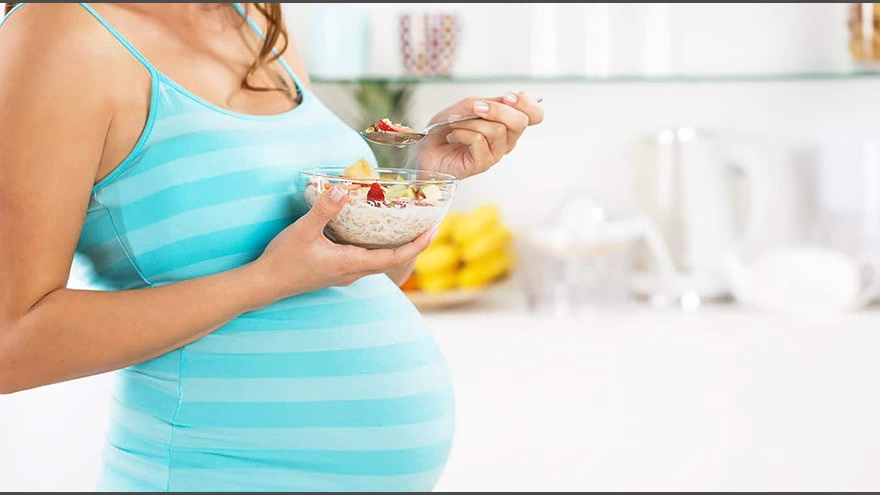
Organic Labeling
The U.S. Department of Agriculture regulates the use of the word organic on food. In order for food to receive an organic label, it must meet rigorous standards. The food must be free of synthetic pesticides, synthetic fertilizer, growth hormones, genetic modification, antibiotics and radiation.Foods that are labeled 100 percent organic contain only organic ingredients while the general term organic requires at least 95 percent of the ingredients to be organic, according to Eating Organic During Pregnancy on the What to Expect website.
Fruit
Fruit is something you should eat organic versions of, if you can afford the increased cost. Some of the common fruits you might eat are also some of the fruits that contain the highest level of pesticides, according to Dr. Alan Greene, clinical professor of pediatrics at Packard Children's Hospital at Stanford University.Apples, nectarines, peaches, pears, cherries and strawberries are some of the fruits that contain the highest levels of pesticides according to Deirdre Dolan, author of "The Complete Organic Pregnancy."
The fruits that contain the lowest pesticide levels are bananas, kiwis, mangos, papaya and pineapple, one of the reasons for these low levels might be that the peel is discarded when consuming these items and, according to Greene, peels contain the highest levels of pesticides.
Vegetables
Vegetables are also susceptible to containing high pesticide levels. Choose organic versions of bell peppers, potatoes, spinach, lettuce, celery, carrots, squash and other vegetables where you consume the peel.Lower levels of pesticide are found in corn, avocados, onions, peas, asparagus, broccoli and cauliflower.
Meat
Grass-fed, organically raised meat is often the best choice for a pregnant woman. Grass-fed beef contains up to five times the omega-3s of conventionally raised cattle and is a leaner meat product, Greene reports. Organic poultry also has benefits from the lack of growth hormones and antibiotics used.
Dairy Products
Organic milk is from cows that are not given growth hormones, antibiotics or pesticides. Organic milk and items made from organic milk -- butter, cheese and yogurt -
- also contain extra omega-3s and beta-carotene, Greene reports.
When Organic Isn’t An Option
If you are unable to find or afford the organic version of a food, take a few extra steps to reduce your exposure to pesticides.Wash all produce -
- whether organic or nonorganic -
- with soap and water or a produce rinse.
For nonorganic fruits and vegetables, remove the peel to reduce the pesticide content. Trim excess fat from beef and produce because pesticides accumulate in the fatty tissue, according to obstetrician Laura E.
Stachel in her article “Eating Organic Foods During Pregnancy” for Fisher-Price.
Save for later
Found this helpful?
Pin this article to your Pinterest board and come back to it whenever you need a reminder.
Save to Pinterest


